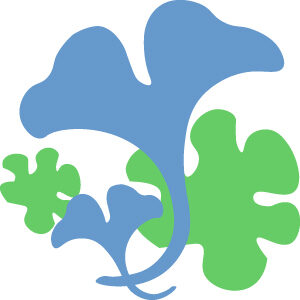Code of Ethical Conduct for Agile Coaching
Preamble
People practicing agile coaching are expected to act ethically, but what does that mean in practice?
The intent of this Code of Ethical Conduct (Code) is to provide guidance for people undertaking agile coaching activities, to guide the types of behaviors, advice, and approaches expected of them.
Agile coaching is an evolving practice encompassing many disciplines including individual, team and systemic coaching, facilitating, teaching and mentoring, all applied with an open and deliberate bias towards using agile approaches to help address the client’s needs.
The complexity of agile coaching means that you will inevitably encounter difficult situations. This Code will help support you when these difficult decisions need to be made and you can provide it in support of your decisions to your clients.
Anyone who embraces the Code strives to act ethically, even when doing so involves making difficult decisions. They act courageously, even if there is a personal negative impact.
The signatories of this Code are multicultural, multigenerational, and affiliated with many different groups. We believe that the power of this movement is amplified when we set aside differences and lift each other up in pursuit of a better way. We commit to supporting each other in difficult decisions and courageous conversations.
The Code

As someone who practices agile coaching ethically, I commit myself to the following:
1. Protecting confidentiality, intellectual property and information security
- I will protect information shared with me and will only disclose it for legal reasons or when I have clear agreement with my client and stakeholders.
- I will attribute other’s ideas appropriately and avoid the appearance that they are mine.
2. Acting within my ability
- I will be open and transparent about my skills, experience and qualifications.
- I will be clear with my client and stakeholders if they make a request beyond my capabilities.
- I will be open with the client if I believe they need another form of professional help.
3. Introspection and continuing professional development
- I will engage with a peer group or mentor to explore ethical and other challenges in my agile coaching work.
- I will seek to improve my self-awareness and effectiveness through introspection and professional development.
4. Navigating conflicts of interest
- I will be transparent about any potential conflicts of interest with all who might be affected.
- I will consciously avoid situations where I benefit myself to the detriment of the client and stakeholders so that I may maintain professional judgment and objective thinking.
- I will resolve conflicts of interest by working with the client and stakeholders, seek assistance when needed and suspend or end the relationship if needed.
5. Ensuring value in the relationship
- I will check with my client and stakeholders to ensure the relationship is valuable and only extended through mutual agreement.
- I will make it transparent if my client is forming dependencies on my services and will work towards their own self-sustaining agility.
- I will be open with the client if I believe the value in the relationship is declining.
6. Upholding social responsibility, diversity and inclusion
- I will seek opportunities to bring different voices to the conversation.
- I will take action to discourage and eliminate discrimination in any form.
- I will strive to leave society better than I found it, by my action or inaction.
7. Agreeing on boundaries
- I will ensure we have an agreed upon scope, even if it evolves.
- I will work with the client to understand their needs and avoid imposing solutions based on my personal preferences and desires.
- I will openly challenge when my client is pursuing purposes at odds with the Agile Manifesto’s Values and Principles.
8. Managing differences in status and power
- I will not use my positional authority, power or influence to achieve personal gain or undermine the goals of my client.
- I will create awareness when power, privilege and rank are impeding my client’s goals or my ability to serve them effectively.
9. Responsibility to the profession
- I will invite others who practice agile coaching to adopt professional standards and this code of ethics.
- I will enhance and uplift the reputation of the agile coaching profession.
- I will encourage healthy dialogue and reflection when I encounter unethical behaviour in others.
Acknowledgments
Codes of Ethics already exist for coaching, facilitation and other disciplines included in the practice of agile coaching. In preparing this code we have been inspired by those existing codes and the work of many who have contributed to the conversations about ethics in agile coaching over the years.
This code of ethics is supported by additional explanations in the related ethics scenarios.
More information can be found on the Agile Alliance website: https://www.agilealliance.org/resources/initiatives/agile-coaching-ethics/
Version 2.0 March 2022.
This material is released under the Creative Commons, Attribution, Share Alike 4.0 license
